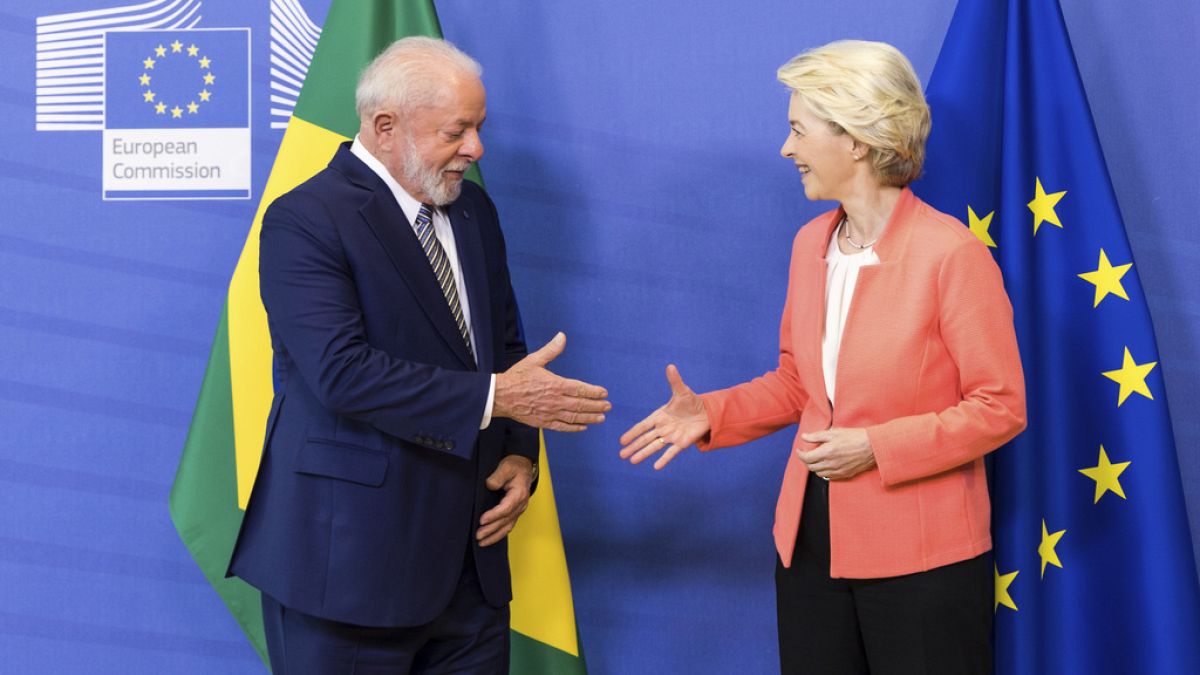Brazil is optimistic that the EU-Mercosur trade deal can be ratified despite some opposition, and believes the current US tariff situation will impel this, a leading Brazilian trade envoy has told Euronews.
“We are very optimistic especially now that US has raised tariffs across the world,” Jorge Vian, head of ApexBrasil, Brazil’s Trade and Investment Promotion Agency, told Euronews, adding: “With the hostile environment that the world is facing right now we may collaborate to improve the implementation of the agreement.”
In December, the European Commission concluded a political agreement with the Mercosur countries – Argentina, Brazil, Paraguay and Uruguay – to establish one of the world’s biggest free trade zones, encompassing 750 million people and about one-fifth of the global economy. The agreement now needs approval from EU countries before it enters into force.
Some member states led by France have resisted the deal, however, citing concerns over unfair competition that could result from Mercosur exports of agriproducts and environmental standards in Mercosur countries.
“What we have now is an objective situation: the Trump administration is damaging free trade and multilateralism; there’s a need to adjust for everybody,” said Jorge Vian, adding: “Europe exports more than 600 billion dollars’ [worth of goods] to the US. If these exports suffer tariffs of around 20%, it will affect the life of agricultural producers, industrial producers and manufacturing sectors in Europe.”
Of French calls for so-called “mirror clauses” to be inserted into the agreement – designed to ensure that agricultural imports from Mercosur meet the same production standards applicable to EU farmers – he said that production conditions are too different to be mirrored.
“In Brazil, you have a tropical-based production while in Europe it is a temperate-based production. These climatic structures are very different,” Vian said.
He said that although food production remained a sensitive issue, “it can be solved with dialogue and cooperation”.
Brazil hopes to export not only critical raw materials, but also renewable energy to Europe. In the industrial sector, Embraer, Brazil’s aerospace giant, which already has a plant in Portugal, promised “billions of dollars of investment in Europe to produce components of aeroplanes,” the official added.
In the EU, advocates of the Mercosur agreement claim that the deal is necessary to counter Chinese influence in the region.
“Obviously , the Chinese influence on all the continent is a reality,” Vian said, but he added: “Europe is a priority for us. China is Brazil’s biggest trade partner not in term of quality but in term of quantity.
Read the full article here


